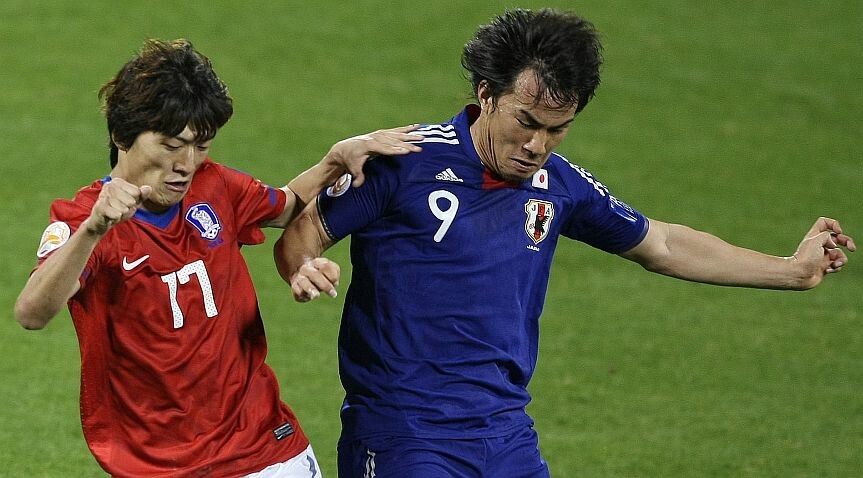
Thu, 28 Oct, 2021

Sixty years ago, Japan and Korea Republic played each other for the first time in a qualifier for the 1954 FIFA World Cup. Korea’s President Syngman Rhee told his players to “be prepared to throw yourselves into the ocean if you lose.” Thankfully for the Korean players, they won the match, and a new football rivalry was born.
In 1988, the two sides met for the first time in the AFC Asian Cup in Doha. At that point, Korea Republic had won two Asian Cups and was a regional heavyweight, while it was Japan’s first entry into the tournament. After two goals in the first half, the Taeguk Warriors were too strong for Japan. The first came after just 13 minutes as one of Korea’s greatest strikers, Hwang Sun-hong, found the back of the net with a pinpoint header. The second, a quick counter-attack finished by Kim Joo-sung, finished the Japanese off.
Like all the biggest rivalries, this one is born out of a shared history dating back to the 16th century. The intensity of this rivalry cooled somewhat during the 2002 World Cup, as the two nations co-hosted the tournament. It was a rare occasion for football diplomacy, and both teams did their countries proud by progressing past the group stage. As the Red Devils famously finished in fourth place, the highest ever for an Asian side, Dutch manager Guus Hiddink was elevated to football royalty by the South Koreans.
When the Samurai Blue and the Taeguk Warriors met in the Asian Cup 3rd place playoff in 2007, it was another intriguing affair. Late chances fell to defending champions Japan, but the match finished 0-0 and went to a penalty shootout. After both teams converted five penalties each, Korea’s goalkeeper Lee Woon-jae pulled off a terrific save to deny Naotake Hanyu from the spot.
In 2011, the two nations met again in Doha, and this time it was Japan that won on penalties. It was the best game of their three AFC Asian Cup encounters, finishing at 1-1 after regulation time. Japan then scored first in extra-time through Hajime Hosogai, but Cho Kwang-rae’s men kept pressing, eventually equalising with the last kick of the game through Hwang Jae-won. Despite the late comeback, Korea missed all three of their penalties in the shootout, and Japan progressed, where they beat Australia in the final.
Both countries had an unspectacular 2014 World Cup, drawing one match and losing the other two, and will be searching for silverware in the 2015 AFC Asian Cup. With Korea in Group A and Japan in Group D, it is possible that we will see a resumption of one of Asia’s most intense rivalries in either the Asian Cup semi-finals or final this summer.